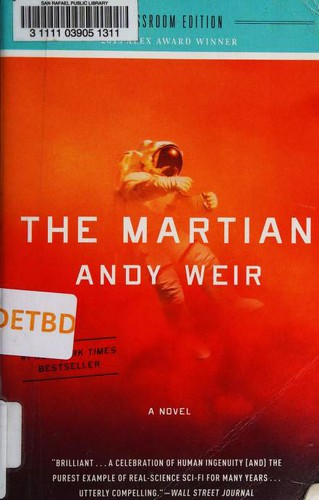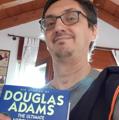Trammell Hudson reviewed The Martian by Andy Weir (The Martian, #1)
Read entire book in one sitting
5 stars
I started this book on the subway home from work, continued reading over dinner, and finished it that night in bed. It's griping, the science is solid, and it's about as close to "hard sci-fi" as you can get. The movie is also quite enjoyable.
I started this book on the subway home from work, continued reading over dinner, and finished it that night in bed. It's griping, the science is solid, and it's about as close to "hard sci-fi" as you can get. The movie is also quite enjoyable.






